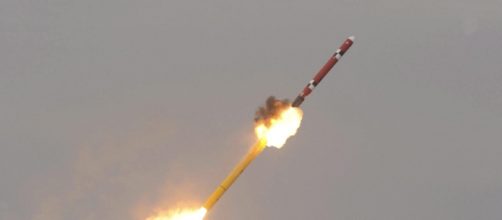Kim Jong-un's latest ballistic missile testing proved everyone wrong, especially American President Donald trump who tweeted in January that the testing won't happen. The testings also prove that it is just a matter of time when the missile will be able to reach the American soil, even before they are even able to put nuclear warheads in.
The repercussions of the missile testing
Former Defense Secretary William Perry said that this testing "changes every calculus" but that the fear shouldn't be about North Korea's attacking the U.S, but rather Kim Jong-un's ability to strike back anytime Trump decides to do anything about the region.
In any case, this would put a ton of pressure on the American anti-missile defense, not to mention the fact that North Korean missiles can already reach the South Korea and Japan. And to make matters even worse, this kind of missiles could already contain nuclear warheads.
With this in mind, Rex Tillerson asked the United Nations Security Council to "enact stronger measures" against North Korea before he added that any kind of help to Pyongyang would be marked as "aiding and abetting a dangerous regime," the New York Times reports.
What are Trump's options?
Trump could prevent North Korea's ability to expand its influence, which the U.S. has done before against the former Soviet Union. However, this way of dealing with things doesn't solve the problem for the long run.
Another thing he could do is to impose a series of sanctions and to sabotage missile launches with the secret American cyber program.
He even went as far as telling the Chinese President Xi Jinping that, if necessary, the U.S. would go against North Korea alone. However, Jinping wasn't convinced and Trump's chances of convincing China to act have dropped. Trump could also take another path and threaten with a military strike if the U.S. detects any more missiles. However, this might seem like a good idea 10 years ago, but a lot has changed since then. Now, North Korea has built too many missiles, and ran too many testings with solid-fuel missiles that can be hidden in the mountains.
The next option would be freezing the North Korean missile testings in exchange for an agreement that suspends any sort of military exercises with South Korea.
Although this may seem like a good idea, at least according to the Russian President Vladimir Putin and the new President of South Korea Moon Jae-in, there are still some risks, mainly because it puts limits on the U.S. military freedom in Pacific.


